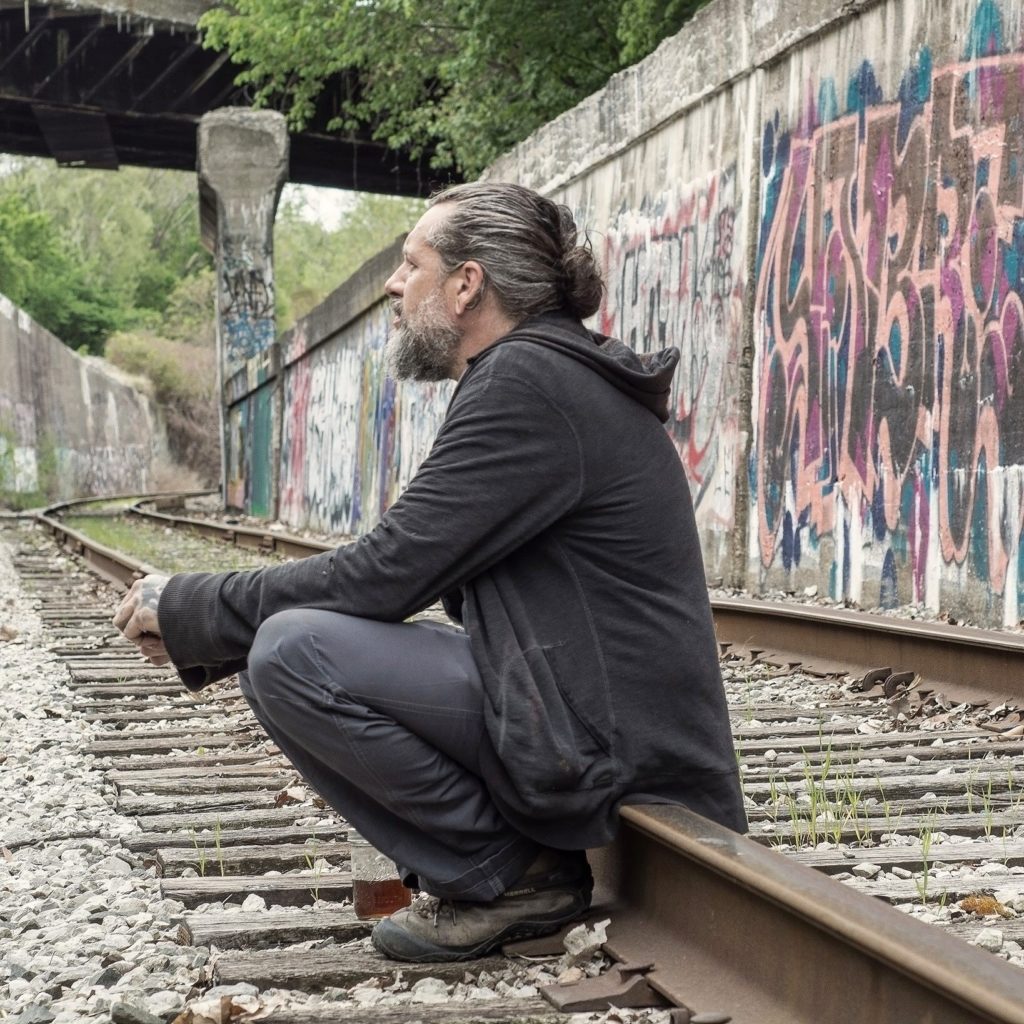
Sun 8/26 @ 1-3PM
This truly is the Year of the Dog. Not only does the Chinese Zodiac calendar tell us so, but talking heads are currently debating ad nauseum the implications of being called a dog.
Also taking place on National Dog Day is Sean Jason Kelly’s one-day exhibit Dogs of Train Ave, appearing Sun 8/26 at the Derek Hess Gallery. The Cleveland-based visual and tattoo artist will be showing of his work inspired by the dead dogs he found along the obscure Train Avenue.
Located in our backyard, Train Avenue represents the underbelly of society where dogs are disregarded and cast aside out of public view. Invariably, the same notion — along with the exhibit — also speaks indirectly about the homelessness issue.
Previously Kelly garnered attention contributing his talent to community art projects such as St. Clair Superior’s Zodiac Project, Slavic Village’s Rooms To Let and the annual Art Fur Animals fundraiser benefitting the Friends of the Cleveland Kennel. As the benefitting organization of the Dogs of Train Ave exhibit, the latter group will be present promoting its efforts to assist low-income families with pet resources and end-of-life pet services.
Documenting Kelly’s journey is local filmmaker Jeff Theman (Guilty Till Proven Innocent), who plans on premiering the trailer for his upcoming film, the appropriately titled Train Ave, the night of this exhibit.
CoolCleveland talked to Theman about his friend Kelly and the Dogs of Train Ave exhibit.
CoolCleveland: First of all, tell us about Kelly’s Dogs of Train Ave exhibit.
Jeff Theman: Sean is a tattoo artist. In 2014, I actually scheduled an appointment with him. He was talking to me about these dogs he was finding along Train Avenue. He started getting them cremated because he didn’t want the city to come through and put them in a landfill. Then he started incorporating the ashes in his artwork. It’s really beautiful what he’s doing, paying for all of cremations, which is not cheap. I just pitched him the idea of letting me follow him around with my camera. He accepted, which is I guess pretty remarkable considering he’s kind of reclusive. I know how far he was putting himself out there to allow me to do that. So I started doing the film. It’s pretty dark. If you’re finding dead dogs on the side of the road, when you’re looking at that dog it’s hard not to — it’s a dog. Everybody loves dogs — at least most people do.
CC: What did Kelly discover about the dogs he was finding?
JT: Some dogs he found did have lacerations on them, which means they were probably mistreated in some way, possibly dog fighting or some other kind of behavior that’s not accepted. Also, some of the dogs might have been family pets that people buried down by Train Avenue.
CC: Can you talk about Train Avenue, which is west of I-71 and basically parallel to I-90?
JT: It’s an area most people don’t know about, even in Cleveland. For decades, the Train Avenue area, which runs through three or four different neighborhoods, has always been kind of a forgotten part of town. Recently, a 30-year-old man’s dead body was found at W. 30th and Train Avenue. About four years ago, there was a woman found raped and killed. Her body was dumped on 41st and Train Avenue. So it’s not just dogs. I love my city. You’ll be hard-pressed to find somebody who loves his city more than me. But I’m not afraid to show our shortcomings either. That’s kind of what the film is exposing as well. It’s talking about this collective problem in general with the area. There’s this big renaissance happening in Cleveland. People are talking about Cleveland, it’s in the news around the country, but my problem with that is we’re not able to call this a renaissance unless all of Cleveland is experiencing some kind of positive growth. And there are some areas in Cleveland that are not.
CC: What’s your role in the upcoming exhibit?
JT: I’m the one organizing it. Derek Hess Gallery reached out to us and said, “We’d love to be a part of this. If there’s anything that we can do to help, let us know.” That’s when I said, “We’re looking to do a showing of his art.” They said, “Sure.” So that’s why I’m involved. I want to show other people this amazing artwork that he’s doing and the cause behind it.
CC: Aside from the horrors of animal cruelty, what do you hope exhibitgoers take away from Dogs of Train Ave?
JT: I hope people get inspired to do something. Too often I hear people say that they wished they could have done something. Everybody could do something for somebody. I hope his art inspires people to act on what they wanted to do instead of just pondering it. It was a selfless act Sean did. He showed compassion for these dead dogs. He acted on his emotion, so I hope others will do the same.